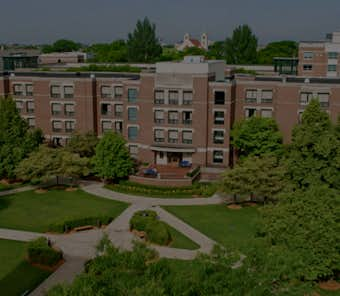
Study television abroad
Find programs that match your eligibility and aspirations then apply with reduced application fees, a free assessment and access to a dedicated advisor.
Find your perfect television programs abroad
Find television programs you love that match your needs & aspirations, where you stand a high chance of acceptance.
-

PhD programs in
televisionNo programs listed
Television degrees abroad
Television is a recent field of academic study where students develop the theoretical and practical skills needed to produce, analyze, and criticize videos. Television degrees are sometimes called television production, television and broadcasting, or film and television.
You’ll study a wide range of videos and consider how they’ve been influenced by the social and historical contexts in which they were set or produced. You’ll gain industry-level skills in camera-operating, producing, presenting, directing, writing, and editing, and use state-of-the-art equipment to create your own content.
Television is a global industry that is changing faster than ever as online streaming services emerge and take hold. By studying television abroad, you’ll be at the forefront of new developments and trends. You’ll connect with international professionals, explore new audiences, and gain a global understanding of the media landscape.

Why use Studee?
-
Find your ideal program
Filter 10,000s of programs down to a shortlist perfect for you, where you have a strong chance of getting admitted
-
Apply online via Studee
Complete our application form and enjoy reduced application fees and access to unique Studee scholarships for many universities
-
We assess within 48hrs
We complete an 85-point assessment within 2 business days, help you with improvements then submit to your university
-
University offer in 2-4 weeks
We chase the university for your admission decision and keep you updated. We all celebrate your admission!
All our services are 100% free as we're funded by universities. You pay deposits and tuition fees directly to the university.

Television program structure
At the bachelor’s level, television programs are offered as both a BA and a BSc. The difference between the two programs is minimal, although you might find slightly more practical modules on a BSc program. Bachelor’s courses last for a minimum of three years, but most universities recommend that you take an extra placement or sandwich year to gain hands-on industry experience.
Once you’ve completed your bachelor’s, you can choose to study a postgraduate qualification. These programs are more research-focused and will ask you to specialize in a particular area. A master’s degree can be studied over one or two years, whereas a PhD can take between four and seven years of work.
You’ll encounter a variety of teaching methods on your degree, including lectures, seminars, practical workshops, and screenings. You’ll have the chance to use industry-standard equipment and many universities will arrange for professionals in the field to deliver guest talks.
You’ll be assessed through a combination of exams, essays, presentations, close analyses of television clips, and practical assessments.
Differences in cultural contexts and industry practices mean that television programs will vary between universities around the world. However, here are some core areas of study you can expect to find in most courses:
- Principles of television production
- Technical skills for television
- Understanding media
- Editing for video
- Researching the media
- Presenting and writing for television
Best countries to study television
Television study abroad programs
Television undergraduate programs
Bachelor's in television
-
Acting for Theater, Film and Television - BFA Long Island University Brooklyn, USA
- Program type
- Bachelor's
- Duration
- 4 years
- Annual tuition fee
-
39,458 USD
Fees are displayed in the university's local currency
- Start date
- September, January
-

Audiovisual Communication - BCS (with placement) Universidad CEU San Pablo, Spain
- Program type
- Bachelor's
- Duration
- 45 months
- Annual tuition fee
-
13,390 EUR
Fees are displayed in the university's local currency
- Start date
- September
-
Acting: Film, TV & Stage (Top-up) - BA (Hons) Buckinghamshire New University, UK
- Program type
- Bachelor's
- Duration
- 1 year
- Annual tuition fee
-
14,250 GBP
Fees are displayed in the university's local currency
- Start date
- September, February
-
BA (Hons) Visual Effects (VFX) for Film and Television - BA (Hons) Arts University Bournemouth, UK
- Program type
- Bachelor's
- Duration
- 3 years
- Annual tuition fee
-
18,950 GBP
Fees are displayed in the university's local currency
- Start date
- October, February
-
Costume Design for Film & Television - BA (Hons) Falmouth University, UK
- Program type
- Bachelor's
- Duration
- 3 years
- Annual tuition fee
-
17,950 GBP
Fees are displayed in the university's local currency
- Start date
- September
Associate in television
-

Radio & TV Broadcasting: Sports - ASc Miami Media School, USA
- Program type
- Associate
- Duration
- 8 months
- Annual tuition fee
-
25,445 USD
Fees are displayed in the university's local currency
- Start date
- August, September, October, November, December, January, February, March, April, May, June, July
-

Film, Television and Electronic Media - AA Cuesta College, USA
- Program type
- Associate
- Duration
- 2 years
- Annual tuition fee
-
12,288 USD
Fees are displayed in the university's local currency
- Start date
- August, January
-
Film, Television and Electronic Media (for Transfer) - ASc Berkeley City College, USA
- Program type
- Associate
- Duration
- 2 years
- Annual tuition fee
-
10,740 USD
Fees are displayed in the university's local currency
- Start date
- August, January
-

Film, Television, and Electronic Media - ASc College of the Desert, USA
- Program type
- Associate
- Duration
- 2 years
- Annual tuition fee
-
7,368 USD
Fees are displayed in the university's local currency
- Start date
- August, January
-
Film, Television, and Electronic Media (Diablo Valley College) - AS-T Colleges of Contra Costa, USA
- Program type
- Associate
- Duration
- 2 years
- Annual tuition fee
-
9,840 USD
Fees are displayed in the university's local currency
- Start date
- August, January
Diploma in television
-

Writing for Film and TV - Dip Toronto Film School, Canada
- Program type
- Undergraduate diploma
- Duration
- 2 years
- Annual tuition fee
-
11,040 CAD
Fees are displayed in the university's local currency
- Start date
- July, October, January, April
-
Broadcast Television/Videography - UGDip Humber College Institute of Technology and Advanced Learning, Canada
- Program type
- Undergraduate diploma
- Duration
- 2 years
- Annual tuition fee
-
16,803 CAD
Fees are displayed in the university's local currency
- Start date
- September, January
-

Broadcasting: Television - OCDip Seneca College of Applied Arts and Technology, Canada
- Program type
- Undergraduate diploma
- Duration
- 2 years
- Annual tuition fee
-
17,701 CAD
Fees are displayed in the university's local currency
- Start date
- January, September
-

Broadcasting: Television and Communications Media - OCADip Mohawk College, Canada
- Program type
- Undergraduate diploma
- Duration
- 3 years
- Annual tuition fee
-
17,535 CAD
Fees are displayed in the university's local currency
- Start date
- September, January
-

Broadcasting : Television and Video Production - OCDip Canadore College of Applied Arts and Technology, Canada
- Program type
- Undergraduate diploma
- Duration
- 2 years
- Annual tuition fee
-
17,073 CAD
Fees are displayed in the university's local currency
- Start date
- September
Certificate in television
-

Music Production for Film, TV and Games - Cert HE The Institute of Contemporary Music Performance, UK
- Program type
- Undergraduate certificate
- Duration
- 1 year
- Annual tuition fee
-
15,250 GBP
Fees are displayed in the university's local currency
- Start date
- September
-

Television and Film Production Management - Cert College of the North Atlantic, Canada
- Program type
- Undergraduate certificate
- Duration
- 1 year
- Annual tuition fee
-
9,488 CAD
Fees are displayed in the university's local currency
- Start date
- September, January, May
Television graduate programs
Master's in television
-
Film & Television - MA Falmouth University, UK
- Program type
- Master's
- Duration
- 1 year
- Annual tuition fee
-
17,950 GBP
Fees are displayed in the university's local currency
- Start date
- September
-
Film and Television - MSc DePaul University, USA
- Program type
- Master's
- Duration
- 2 years
- Annual tuition fee
-
23,868 USD
Fees are displayed in the university's local currency
- Start date
- September
-

Film, Television and Digital Narratives - MA SRH Berlin University of Applied Sciences, Germany
- Program type
- Master's
- Duration
- 2 years
- Annual tuition fee
-
11,400 EUR
Fees are displayed in the university's local currency
- Start date
- October, April
-

Cinematography: Film and Television - MA Bournemouth University, UK
- Program type
- Master's
- Duration
- 1 year
- Annual tuition fee
-
15,500 GBP
Fees are displayed in the university's local currency
- Start date
- September
-
Special Effects for Film & TV - MA Buckinghamshire New University, UK
- Program type
- Master's
- Duration
- 1 year
- Annual tuition fee
-
19,250 GBP
Fees are displayed in the university's local currency
- Start date
- September
Certificate in television
-
Advanced Television and Film - PGCert Sheridan College, Canada
- Program type
- Postgraduate certificate
- Duration
- 1 year
- Annual tuition fee
-
32,905 CAD
Fees are displayed in the university's local currency
- Start date
- September, January, May
-
Film and Television: Business - OCGCert Centennial College, Canada
- Program type
- Postgraduate certificate
- Duration
- 1 year
- Annual tuition fee
-
17,303 CAD
Fees are displayed in the university's local currency
- Start date
- September
-

Visual Effects for Film & Television - OCGCert Seneca College of Applied Arts and Technology, Canada
- Program type
- Postgraduate certificate
- Duration
- 8 months
- Annual tuition fee
-
25,329 CAD
Fees are displayed in the university's local currency
- Start date
- January, May, September
Future television careers
Your degree will prepare you with the skills you need to begin a successful career in the television industry. Although you may be offered entry-level employment at first, there’s plenty of scope for you to work your way up into high-level positions.
Here are some of the most common roles secured by television graduates:
- Camera operator
- Studio technician
- Studio manager
- Presentation scheduler
- Videographer
- Creative producer
- Assistant television editor
- Floor runner
Employers in the television industry are always on the look-out for individuals with passion and practical experience. Some universities have a media society or television channel that reports on campus life and sporting events, so it’s a good idea to get involved and boost your employability.























